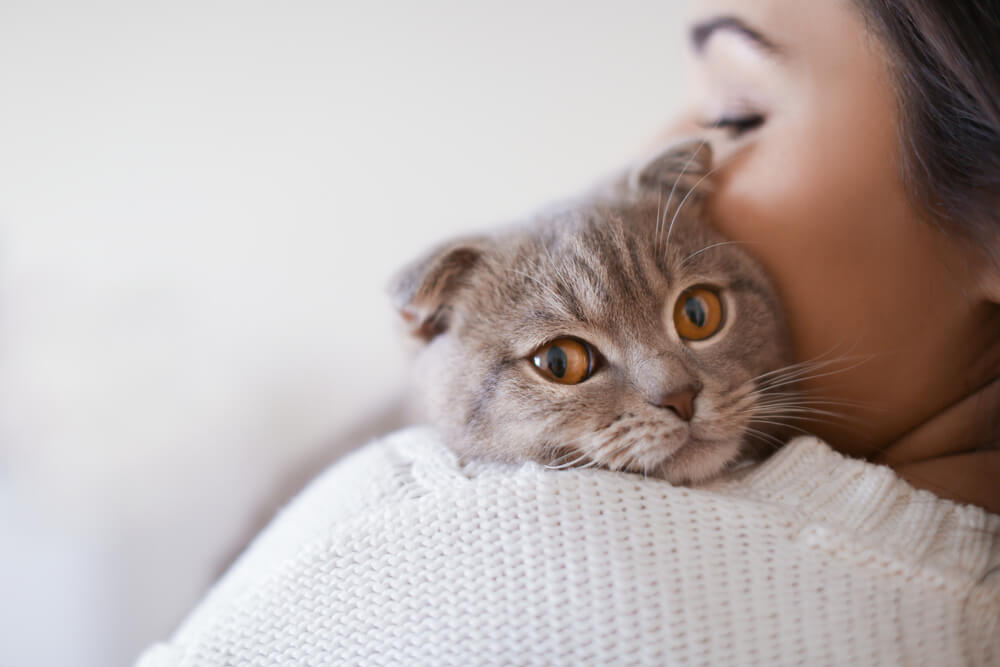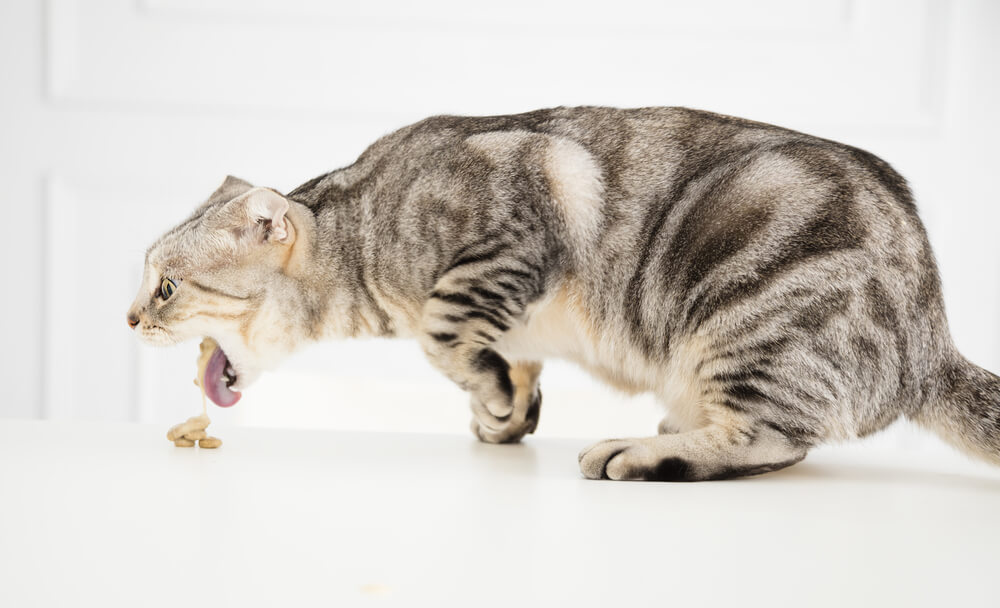
Cats enter our lives in expected and unexpected ways. They may be welcomed home after lengthy research and purchase or adoption from a reputable breeder or shelter. We may find our cat orphaned and scared on the side of the road. Or, they may simply saunter up to our door and take up residence as if they are adopting us.
However you find each other, you’ll want to ensure the best for your cat by protecting them against dangerous diseases. Unfortunately, cats are vulnerable to a number of infectious pathogens that can damage or destroy their health. Our team at Towne Centre Animal Hospital has a guide to the most common contagious feline diseases.
#1: Feline infectious peritonitis
Feline infectious peritonitis (FIP) is a rare viral mutation of a common feline coronavirus. While a normal feline coronavirus causes mild signs, the mutated FIP strain—which affects 10% of cats—enters the white blood cells and triggers widespread inflammation in the abdomen, kidneys, and brain. FIP can affect cats of any age, but kittens, immunocompromised, and young, unvaccinated cats are especially vulnerable.
Cats may encounter the feline coronavirus through contact with infected stool, which is frequently found in shelters and catteries where many cats are housed together. While the feline coronavirus is contagious among cats, FIP is not, and neither one is transmissible to humans or other pets.
Since FIP can appear weeks, months, or years after initial exposure, it is important to recognize the signs:
- Loss of appetite
- Lethargy
- Weight loss
- Depression
- Fever
- Respiratory distress
- Unsteady gait
- Pot-bellied appearance
- Seizures
FIP prognosis and prevention in cats — Unfortunately, no treatment exists for FIP. Towne Centre Animal Hospital can provide supportive care to keep your cat comfortable for as long as possible, but once signs are noticed, the decline is often quick. The best way to protect your cat against FIP is to provide preventive health care and limit their exposure to high-risk environments.
#2: Feline upper respiratory viruses
Feline respiratory signs can have many causes, but the most commonly transmitted respiratory infections are feline herpes virus (i.e., feline viral rhinotracheitis or FVR) and calicivirus. Close contact with infected cats allows these viruses to spread rapidly through sneezing or coughing. Infected cats may show no obvious signs or may demonstrate visible illness, including:
- Eye discharge
- Conjunctivitis or corneal ulcerations
- Sneezing
- Coughing
- Lethargy
- Loss of appetite
- Mouth ulcers
Feline respiratory virus prognosis and prevention — Some cats can clear upper respiratory infections on their own, while others require veterinary treatment and may have lifelong flare-ups. Vaccination of healthy cats is recommended for all ages and is typically part of an annual combination vaccine, FVRCP. Vaccination does not prevent all infections or transmission, but it significantly lessens the severity and clinical signs.
#3: Feline retroviruses—feline leukemia and feline immunodeficiency virus
Feline leukemia virus (FeLV) and feline immunodeficiency virus (FIV) attack the immune system. Both viruses are transmitted by direct contact with infected cat saliva. FIV is most commonly diagnosed in unneutered male cats and outdoor cats who fight. FeLV may be shared by cats housed together through common bowls, toys, or grooming.
Healthy cats may clear an FeLV infection without any signs. Other cats may have a brief, vague illness before the virus hides for months or years and then re-emerges. Both diseases show similar signs, including:
- Lethargy
- Loss of appetite
- Dull hair coat
- Weight loss
- Pale gums or gum inflammation
- Fever
- Diarrhea
- Eye or nasal discharge
Feline retrovirus prognosis and prevention — FIV and FeLV weaken the immune system, resulting in secondary infections, anemia, and cancer. Cats commonly die from secondary causes, rather than the virus itself.
Cats carrying FeLV or FIV should be kept indoors and spayed or neutered. Routine veterinary care and monitoring may allow affected cats to live many years until signs appear. FeLV vaccination is recommended for kittens and young or outdoor cats. No vaccination is available for FIV.
#4: Feline panleukopenia

Feline panleukopenia is a highly contagious, potentially deadly parvovirus in cats. This virus is unrelated to the canine parvovirus and is not transmissible to dogs or humans. Feline panleukopenia primarily affects kittens between 3 and 5 months old. Kittens are infected by contact with contaminated urine, stool, or nasal secretions. The virus is hardy and can live in the environment for up to one year. Panleukopenia attacks the intestinal lining, and common signs include:
- Depression
- Loss of appetite
- Fever
- Vomiting
- Severe diarrhea
- Lethargy
- Nasal discharge
- Dehydration
Feline panleukopenia prognosis and prevention — Kittens under 8 weeks of age have a poor prognosis, and 90% of infected cats die without supportive veterinary care. Infected cats must be kept in strict isolation from other cats, especially those who are unvaccinated. Surviving cats acquire a protective immunity.
Vaccination is the most effective prevention against panleukopenia, and the kitten series should begin at 6 to 8 weeks old. After an initial adult booster at one year of age, cats may be revaccinated based on their lifestyle.
Feline infectious diseases are highly contagious and widespread. Protect your cat by keeping them up to date on preventive care at Towne Centre Animal Hospital. Routine vaccination, wellness examinations, and high-quality nutrition are necessary to strengthen your cat’s immune system and give them the best chance to fight off infectious diseases. Contact us to schedule your cat’s annual examination.
